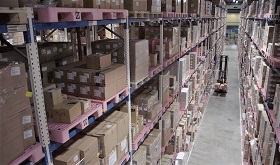Written by Brett Marshall, Corporate Head of Quality Assurance Zuellig Pharma
The COVID-19 has had far-reaching effects on global supply chains. Supply chains all over the world have been put to the test as countries and businesses battle to effectively manage disruptions caused by the pandemic.
Zuellig Pharma is one of the largest healthcare services groups in Asia that serves over 350,000 medical facilities. Knowing that our work has a tremendous impact on the health of many communities we operate in, our teams across the region have been innovating and working non-stop to ensure that essential medicines and healthcare continue to be accessible.
While we have some way to go in our fight against the virus, we recognise that the management of supply chains will evolve when the dust starts to settle. Here are some ways we have identified.

Strengthening engagement with key stakeholders
Pandemic response plans and actions being implemented across the region involve the collaboration of many government departments within each country, all with a common goal to ensure freedom of movement for essential products and services.
As lockdowns significantly impact the delivery of medical essentials, Zuellig Pharma quickly recognised the need to maintain ongoing dialogues with the different stakeholders to align on supply chain structural needs to support an effective response.
In the Philippines, we expanded our range of stakeholders beyond our usual partner – the Department of Health. We worked on building communications with other agencies involved in the pandemic response management, such as the ministries for trade, transportation and defence. Counting on our capabilities and strong partnership with the Department of Health, Zuellig Pharma’s delivery of life-saving medication was recognised as an essential service. Teams were able to continue with deliveries despite the widespread restrictions on movement. In times of need, we leveraged our expertise and capabilities to support our clients and customers’ supply chain requirements to the best of our abilities.
Moving forward, we will see a more pressing need for businesses to establish discussion platforms together with industry associations and government, for alignment and engagement to take place and to set up capabilities to effectively manage future situations.
Utilising innovation to build remote working capabilities
Technology is a critical enabler. With strict safe distancing measures in place and guidelines to allow employees to work from home whenever possible, teams are no longer able to be fully present onsite. This has sparked a stronger need for digitalisation and the development of remote working capabilities to ensure businesses still operate as per normal.
But the digital divide remains, technologically advanced countries like Singapore have existing infrastructure to take the lead, while less advanced markets need to build their capabilities to leverage these opportunities. One way we have helped in bridging the gap is to have our Digital Solutions team ramping up the development of technologies for use across all our 13 markets. For example, our online ordering platform, eZRx, which was recently launched in the Philippines, Singapore and Malaysia and acceleration of roll-out across the rest of our markets this year, enables customers to place and pay for orders of medical stocks anytime, anywhere. This can be done without reliance on sales reps to be present for order and payments collection.
Also, non-frontline staff in Zuellig Pharma have a host of digital tools at their fingertips that facilitate important business meetings and help employees in daily discussions, collaboration and tasks, and operations, quality and financial governance.
Adopting a risk-based approach
The global pandemic has surfaced gaps in our healthcare supply chain. It has shown us the importance of ensuring the resilience of supply chains and agility, which are key in establishing capabilities to manage these disruptions, as businesses across the globe fold and many are faced with the reality of empty supermarket shelves and a shortage of hospital supplies.
We will see a larger focus from companies in balancing cost against a deeper understanding of supply chains and risk when it comes to developing their medium and long term supply chain strategy. Material sourcing will be reviewed, geographic production capabilities re-assessed, strategic inventories identified, late-stage customisation options considered. Our teams are trained in risk-based thinking and have identified a few key opportunity areas to work on to build resilience in our business when the next event occurs.
For instance, many of our teams at Zuellig Pharma are front liners. They are working on the ground to ensure pharmaceuticals, medical devices and diagnostics are efficiently delivered to healthcare providers who urgently require them. It is thus critical to ensure the health and welfare of these workers, as they are such a tremendous resource. To do so, we need to plan for scenarios with simulations, test them and make adjustments so we can effectively deal with inevitable future disruptions.
As we come together to overcome COVID-19, it is not a question of if, but when the next one will come along. We will need to be as prepared as possible in terms of bolstering our strategies, prioritising our communications as well as trainings and arrangements with various stakeholders so that we are well-equipped for the future.
.jpeg?h=165&iar=0&w=280)